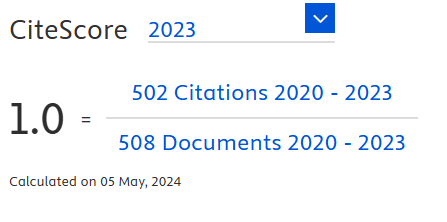TREATMENT WITH FERULIC ACID AMELIORATED CISPLATIN‑INDUCED NEPHROTOXICITY AND OXIDATIVE STRESS IN TUMOR BEARING MICE
DOI:
https://doi.org/10.18006/2021.9(4).492.499Keywords:
Ferulic acid, Nephrotoxicity, Oxidative stress, Antioxidant, Tumor, AnticancerAbstract
Cisplatin (Cis) is one of the most widely used cytotoxic therapeutic agents for the treatment of cancer. Overdose of the drug resulted in various side effects of genotoxicity and nephrotoxicity. The toxicity of the drug has been attributed to the generation of oxidative free radicals. The current study aims to explore the effect of Ferulic acid (FA) in ameliorating Cis-induced renal toxicity in tumor bearing Swiss albino mice. Nephrotoxicity was induced in tumor bearing mice by a single dose of Cis (12mg/kg, i.p). Post administration of FA was carried out (100 mg/kg p.o and 200 mg/kg p.o) one hour after Cis administration. Toxicity was measured by analyzing the amount of serum urea, creatinine, and antioxidant status of renal and tumor tissues. Treatment of cisplatin-administered tumor animals with the FA could prevent the drug-induced oxidative damage as evidenced by the decreased levels of lipid peroxidation and enhanced activities of the antioxidants in the renal tissues. The treatment also protected the renal tissues from the toxic effects of Cis by reducing the levels of serum urea and creatinine. FA protected the renal tissues, whereas it enhanced the anticancer efficacy of Cis in tumor tissues. The histopathological observations support that ferulic acid has a protective effect against Cisplatin-induced nephrotoxicity and can be used to improve the chemotherapeutic index of Cisplatin for cancer treatment.
References
Ali BH, AlMoundhri MS (2006) Agents ameliorating or augmenting the nephrotoxicity of cisplatin and other platinum compounds: a review of some recent research. Food and Chemical Toxicology 44: 1173–1183.
Allen LC, Michalko K, Coons C (1982) More on cephalosporin interference with creatinine determinations. Clinical chemistry 28 (3): 555-556.
Awdishu L, Mehta RL (2017) The 6R’s of drug induced nephrotoxicity. BMC Nephrology 18:124.
Batista R (2014) Uses and potential applications of ferulic acid. In: Warren B (ed). Ferulic acid: antioxidant properties, uses and potential health benefits, 1 Ed. Nova Science Publishers, Inc., New York, USA 39–70.
Boogaard PJ, Lempers EL, Mulder GJ, Meerman JHN (1991) 4-methylthiobenzoic acid reduces cisplatin nephrotoxicity in rats without compromising anti-tumor activity. Biochemical Pharmacology 41: 1997–2003.
Buege AJ, Aust SD (1978) Microsomal Lipid Peroxidation. Methods in Enzymology 52: 302-310.
Divakaran SA, Nair CKK (2012) Amelioration of Doxorubicin Induced Cardiotoxicity in Tumor Bearing Mice by Ferulic Acid: a Mechanistic Study at Cellular and Biochemical Level. International Journal of Tumor Therapy 1(2): 6-13.
Fang C, Lou D, Zhou L., et al. (2021) Natural products: potential treatments for cisplatin-induced nephrotoxicity. Acta Pharmacologica Sinica. https://doi.org/10.1038/s41401-021-00620-9.
George SP, Anushree CS (2014) Drug-induced impairment of renal function. International Journal of Nephrology and Renovascular Disease 7: 457–68.
Giaccone G (2000) Clinical perspectives on platinum resistance. Drugs 59:9–17.
Hafemann DG, Sunde RA, Hoekstra WG (1974) Effect of dietary selenium on erythrocyte and live glutathione peroxides in the rat. Journal of Nutrition 104: 580-87.
Hanigan MH, Devarajan P (2003) Cisplatin nephrotoxicity: molecular mechanisms. Cancer Therapy 1-47.
Holditch SJ, Brown CN, Lombardi AM, Nguyen KN, Edelstein CL (2019) Recent Advances in Models, Mechanisms, Biomarkers, and Interventions in Cisplatin-Induced Acute Kidney Injury. International Journal of Molecular Sciences 20: 3011.
Humanes B, Lazaro A, Camano S, Gordaliza EM, Lazaro JA, Codesido MB, Lara JM, Ortiz A, Gomez MG, Vasallo PM, Tejedor A (2012) Cilastatin protects against cisplatin-induced nephrotoxicity without compromising its anticancer efficiency in rats. Kidney International 82: 652–663; doi:10.1038/ki.2012.199
Jagieła J, Bartnicki P, Rysz J (2021) Nephrotoxicity as a Complication of Chemotherapy and Immunotherapy in the Treatment of Colorectal Cancer, Melanoma and Non-Small Cell Lung Cancer. International Journal of Molecular Sciences 22: 4618. https:// doi.org/10.3390/ijms22094618
Janakiraman M, Jayaprakash K (2015) Nephroprotective potential of medicinal plants: A Review. International Journal of Science and Research 4(9): 543-547.
Jia Z, Wang N, Aoyagi T, Wang H, Liu H, Yang T (2011) Amelioration of cisplatin nephrotoxicity by genetic or pharmacologic blockade of prostaglandin synthesis. Kidney International 79:77–88; doi:10.1038/ki.2010.331
Joy J, Nair CKK (2008) Amelioration of cisplatin induced nephrotoxicity in Swiss albino mice by Rubia cordifolia extract. Journal of Cancer Research and Therapeutics 4( 3): 111-115.
Kassirer JP (1971) Clinical evaluation of kidney function- glomerular function. The New England Journal of Medicine 285 (7):385-389.
Kim J, Long KE, Tang K, Padanilam BJ (2012) Poly(ADP-ribose) polymerase 1 activation is required for cisplatin nephrotoxicity. Kidney International 82: 193–203; doi:10.1038/ki.2012.64
Kumar N, Goel N (2019) Phenolic acids: Natural versatile molecules with promisingtherapeutic applications. Biotechnology Reports 24: e00370.
Lowry OH, Rosenblum NJ, Farr AL, Randall J (1951) Protein measurement with folin fenol reagent. Journal of Biological Chemistry193:265–75.
McCord JM, Fridovich I (1969) Superoxide dismutase enzyme function for erythrocuprein (hemocuprein). Journal of Biological Chemistry 244: 6049-6056.
Mody H, Ramakrishnan V, Chaar M, Lezeau J, Rump A, Taha K, Lesko L, Ait- Oudhia S (2020) A Review on Drug-Induced Nephrotoxicity: Pathophysiological Mechanisms, Drug Classes, Clinical Management, and Recent Advances in Mathematical Modeling and Simulation Approaches. Clinical Pharmacology in Drug Development 9(8): 896-909.
Mohamed HZ, Shenouda MB (2021) Amelioration of renal cortex histological alterations by aqueous garlic extract in gentamicin induced renal toxicity in albino rats: a histological and immunohistochemical study. Alexandria Journal of Medicine 57 (1): 28-37.
Moreno-Gordaliza EM, Esteban-Fernández D, Alberto Lázaro A, Aboulmagd S, Humanes B, Tejedor A, Linscheid MW, Gómez-Gómez MM (2018) Lipid imaging for visualizing cilastatin amelioration of cisplatin-induced nephrotoxicity. Journal of Lipid Research 59: 1561-1574.
Nematbakhsh M, Pezeshki Z, Jazi FE, Mazaheri B, Moeini M, Safari T, Azarkish F, Moslemi F, Maleki M, Rezaei A, Saberi S, Dehghani A, Malek M, Mansouri A, Ghasemi M, Zeinali F, Zamani Z, Navidi M, Jilanchi S, Shirdavani S, Ashrafi F (2017) Cisplatin-Induced Nephrotoxicity; Protective Supplements and Gender Differences. Asian Pacific Journal of Cancer Prevention 18 (2): 295-314.
Ojha S, Venkataraman, B, Kurdi A, Mahgoub E Sadek B, Rajesh M (2016) Plant-Derived Agents for Counteracting Cisplatin-Induced Nephrotoxicity. Oxidative Medicine and Cellular Longevity Article ID 4320374. doi: 10.1155/2016/4320374.
Pabla N, Dong Z (2008) Cisplatin nephrotoxicity: Mechanisms and renoprotective strategies. Kidney International 73: 994–1007. doi:10.1038/sj.ki.5002786
Panche AN, Diwan AD, Chandra SR (2016) Flavonoids: an overview. Journal of Nutritional Science 5:e47. doi: 10.1017/jns.2016.41.
Rad AK, Mohebbati R, Hosseinian S (2017) Drug-induced
Nephrotoxicity and Medicinal Plants. Iranian journal of Kidney Disease 11:169-79.
Rana MA, Khan RA, Nasiruddin M, Khan AA (2016) Amelioration of Cisplatin-Induced Nephrotoxicity by Ethanolic Extract of Bauhinia purpurea: An in vivo Study in Rats. Saudi Journal of Kidney Disease and Transplantation 27(1):41-48.
Saisruthi K, Sreedevi A (2017) Amelioration of Cisplatin- Induced Nephrotoxicityby Roots of Anthocephalus cadamba. Biomedical & Pharmacology Journal 10(3): 1433-1439.
Sales GT, Foresto RD (2020) Drug-induced nephrotoxicity. Revista da Associacao Medica Brasileira 66(1): 82-90.
Sreenivasan M, Sudheer AR, Menon VP (2007) Ferulic acid : Therapeutic Potential Through its antioxidant property. Recent Advances In Indian Herbal Drug Research. Journal of Clinical Biochemistry and Nutrition 40: 92-100.
Wu H, Huang J (2018) Drug induced nephrotoxicity: Pathogenic mechanisms, Biomarkers and Prevention strategies. Current Drug Metabolism 19 (7): 559-567.
Zhao Y, Dai W (2020) Effect of Phloretin Treatment Ameliorated the Cisplatin‑Induced Nephrotoxicity and Oxidative Stress in Experimental Rats. Pharmacognosy Magazine 16(69): 207-2013.
Downloads
Published
How to Cite
Issue
Section
License

This work is licensed under a Creative Commons Attribution-NonCommercial 4.0 International License.












